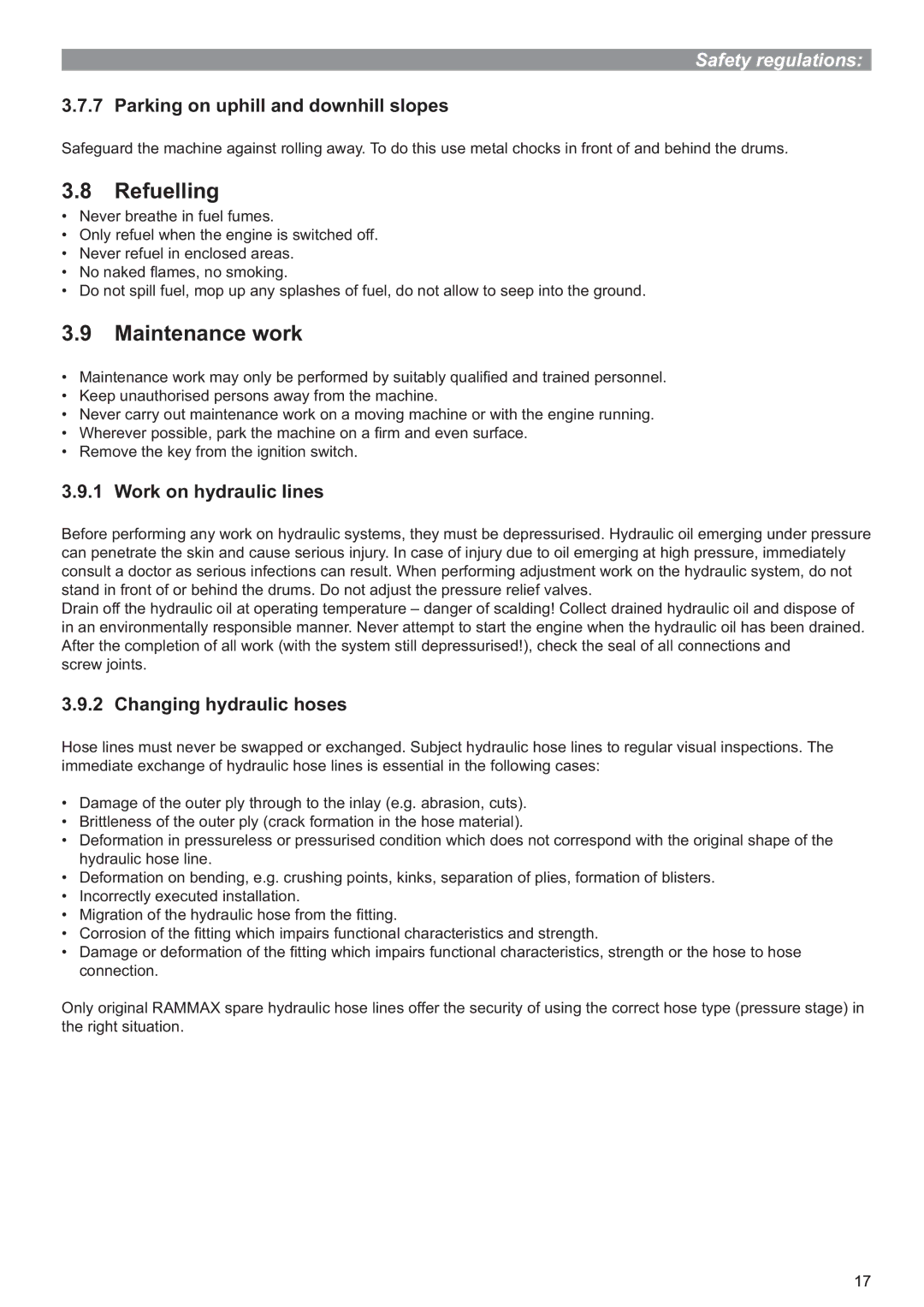Safety regulations:
3.7.7 Parking on uphill and downhill slopes
Safeguard the machine against rolling away. To do this use metal chocks in front of and behind the drums.
3.8Refuelling
•Never breathe in fuel fumes.
•Only refuel when the engine is switched off.
•Never refuel in enclosed areas.
•No naked fl ames, no smoking.
•Do not spill fuel, mop up any splashes of fuel, do not allow to seep into the ground.
3.9Maintenance work
•Maintenance work may only be performed by suitably qualifi ed and trained personnel.
•Keep unauthorised persons away from the machine.
•Never carry out maintenance work on a moving machine or with the engine running.
•Wherever possible, park the machine on a fi rm and even surface.
•Remove the key from the ignition switch.
3.9.1 Work on hydraulic lines
Before performing any work on hydraulic systems, they must be depressurised. Hydraulic oil emerging under pressure can penetrate the skin and cause serious injury. In case of injury due to oil emerging at high pressure, immediately consult a doctor as serious infections can result. When performing adjustment work on the hydraulic system, do not stand in front of or behind the drums. Do not adjust the pressure relief valves.
Drain off the hydraulic oil at operating temperature – danger of scalding! Collect drained hydraulic oil and dispose of in an environmentally responsible manner. Never attempt to start the engine when the hydraulic oil has been drained. After the completion of all work (with the system still depressurised!), check the seal of all connections and
screw joints.
3.9.2 Changing hydraulic hoses
Hose lines must never be swapped or exchanged. Subject hydraulic hose lines to regular visual inspections. The immediate exchange of hydraulic hose lines is essential in the following cases:
•Damage of the outer ply through to the inlay (e.g. abrasion, cuts).
•Brittleness of the outer ply (crack formation in the hose material).
•Deformation in pressureless or pressurised condition which does not correspond with the original shape of the hydraulic hose line.
•Deformation on bending, e.g. crushing points, kinks, separation of plies, formation of blisters.
•Incorrectly executed installation.
•Migration of the hydraulic hose from the fi tting.
•Corrosion of the fi tting which impairs functional characteristics and strength.
•Damage or deformation of the fi tting which impairs functional characteristics, strength or the hose to hose connection.
Only original RAMMAX spare hydraulic hose lines offer the security of using the correct hose type (pressure stage) in the right situation.
17
